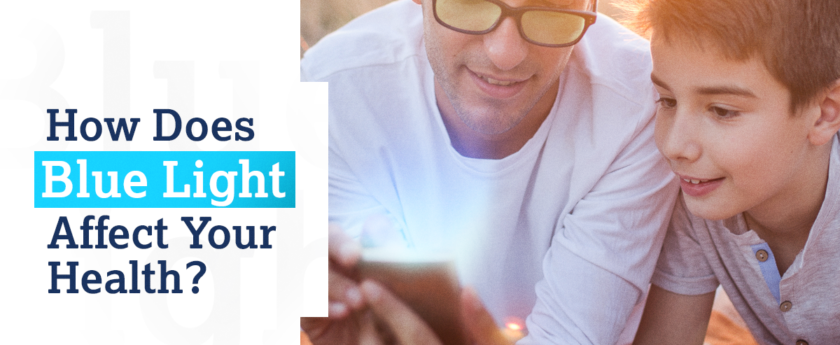Blue light is the highest energy wavelength on the spectrum of light, and the only one that can reach all the way back to the retinas of the eyes. It can be found in everything from natural sunlight to LED lightbulbs, computer and television screens, tablets and Smartphones that are all found inside our homes.
Our exposure to blue light is higher more than ever living in the digital age, so it’s only natural that scientists are beginning to study the effects it has on our health.
How does blue light affect our sleep?
Our brain and bodies operate off of something called our circadian rhythm. It’s our natural wake/sleep cycle, and blue light plays a big part in that. When we absorb blue light, our brain assumes it is the day time, which makes it send a signal to our bodies to stay awake. Now that blue light is present in devices, we can absorb that light long after the sun has gone down, which can:
- Suppress melatonin production and cause sleeplessness
- Cause headaches
- Cause blurred vision and other signs of digital eye strain
What can lack of sleep do?
When our circadian rhythm is off, it can affect many aspects of our lives and health. During work hours, lack of sleep can cause:
- Lack of focus
- Blurred vision and tired eyes
Scientists are also now seeing a link between those who don’t have a good circadian rhythm and physical health issues such as
- Potentially causing lowered blood sugar
- Potentially causing lowered metabolism
- Potentially causing lowered immune system response
What can I do to protect myself from blue light overexposure?
There are things can be done to protect your eyes year-round from overexposure to blue light so you can sleep better, have fewer headaches due to digital eye strain, and prevent other potentially harmful effects of exposure.
- Wear sunglasses year-round outside, but make sure they protect from blue light rays as well. BluTech lenses offer a line of sunglasses that filter blue light at 455 nm, where it is at it’s most harmful.
- Limit screen time, or at the very least take breaks every 20 minutes, and focus your eyes on something at least 20 feet away
- Wear blue light filtering lenses during the daytime hours to filter our blue light
Use your device’s software programmed in to lower the brightness level and turn the screen a warmer color such as Night Shift mode, especially at nighttime hours
Find BluTech Near You




